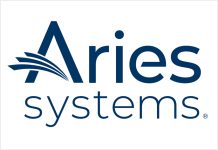
IBM today announced new cloud services to deliver advanced software, computer lab resources and services to students and researchers at schools, colleges and universities, without the need for advanced IT expertise at those locations.
The IBM SmartCloud for Education is a set of cloud services and offerings designed to help education systems leverage predictive analytics to get real-time insights on student and institutional performance, enhance researcher effectiveness, and alleviate constrained lab resources for learning.
By using the IBM SmartCloud for Education services, K-12 schools and higher education institutions can address significant challenges they face: student retention, graduation rates, grant funding, and demands for IT resources for learning and research. Schools can analyze their own data using new SPSS models and tools running in a cloud to identify at-risk students at an early stage. Additional cloud-based social networking tools help discover and recommend funding opportunities and collaborators to researchers. Students and educators can also benefit from self-service reservation of and seamless access to virtual computer resources both on campus and on the IBM public cloud.
“Cloud computing offers educational institutions the ability to transform learning processes to be more student-centered, as well as the potential to reduce costs through shared services,” said Michael King, vice president, IBM Global Education Industry. “Our announcements today lay the groundwork for institutions, systems, and states to begin creating these integrated cloud services for their constituents.”
The new set of services in the IBM SmartCloud for Education include:
Decision Management for Education
This software-as-a-service solution uses all available information within the institution to make real time, informed decisions using leading edge predictive analytical technologies from IBM SPSS. The solution can greatly help administrators and teachers identify individuals with greatest propensity to succeed as well as at-risk students, apply resources and interventions most effectively and then qualify timing and nature of funding initiatives.
One higher education institution has used IBM’s Decision Management for Education to address student retention issues, and can now predict with 80% certainty whether a student is going to drop out. The system uses pre-defined, user-friendly, and web-based modeling to answer common questions about K-12 and higher education performance by deriving insights from available data about students, faculty, community or donors.
IBM Cloud Offerings for Virtual Computing Lab
The IBM Virtual Computing Lab Cloud Solutions for Education provide enhanced services and tools to enable a cloud computing environment as an on-campus private cloud or a ‘hybrid’ cloud connected to the IBM SmartCloud.
Beginning with a collaborative project with North Carolina State University in 2002, IBM has worked with institutions around the world to enable the award-winning Virtual Computing Lab (VCL) open source software platform that was built by and for education. Today over a half million students and educators have access to this cloud platform on IBM hardware servers. These announcements broaden IBM’s solutions to build on that success to include:
- Quickstart services to accelerate the migration from traditional to cloud computing
- VCL integrated server environment built on the IBM BladeCenter Foundation for Cloud
- Advanced VCL image management through Tivoli Provisioning Manager
- Integrated access to IBM SmartCloud compute resources from campus-based VCL system
- Pricing for SPSS software in a hosted virtualized environment for students or faculty members on or off campus, in accordance with the institution’s license agreement
As part of these announcements, IBM is donating the application program interface (API) code for the hybrid cloud connection to the IBM SmartCloud to the Apache Foundation project for VCL.
“At NC State, VCL cloud serves more than 40,000 users and delivers 250,000 resource reservations and over 11 million HPC CPU hours per year and our partnership with IBM has been the key to its development and success. VCL has transformed the way we deliver computational and educational services to our students,” said Dr. Mladen Vouk, professor and head of the Department of Computer Science at NC State University. “VCL provides countless opportunities to better serve our constituency and implement numerous savings and advantages – from provisioning a broad variety of software packages and applications for use by our students in classrooms, teaching laboratories and at home, to customized desktops, to support for researchers, to reduced cost of operations and maintenance that can offer an HPC CPU hour for pennies, to prolonged life-time of equipment.”
Sharon Pitt, Executive Director of the Division for Instructional Technology at George Mason University, has seen a dramatic improvement in services to students and faculty as a results of their VCL implementation. “IBM’s services for VCL has helped GMU accelerate the migration to virtual labs for students and faculty, and deliver direct value to the university in reduction of costs and staff time.”
Academic Research Collaboration and Analytics
In a related announcement, IBM has established a collaborative research effort with the University of Rhode Island to use cloud-based analytics and social networking tools to help researchers more easily find funding opportunities; identify collaborators around the world; and locate the latest published research findings in their fields.
The research project between IBM and URI’s College of Pharmacy is a “First-of-a-Kind” (FOAK) project based on a patented IBM invention aimed at helping academic researchers quickly find the resources they need to better plan, manage and measure the progress of their research projects. The college, for example, is managing a $42 million federal biomedical science research program, and needs fast, reliable information on scientists and their work.
The Academic Research Collaboration and Analytics system relies on the Unstructured Information Management Architecture to analyze textual research data; the same technology was used in IBM’s Watson project to enable computers to compete with humans in answering complex questions.
IBM has been collaborating with a community of leaders to create innovative approaches with cloud computing to help transform education. For instance, the IBM Cloud Academy is uniquely designed for K-12 schools and higher education institutions actively integrating cloud technologies into their infrastructures to share best practices and work together on this transformation. By encouraging collaboration among members and with IBM researchers, developers, and IT architects, the IBM Cloud Academy includes participating institutions in a community that helps maximize the benefits of cloud computing investments. For more information about the IBM Cloud Academy, please visit:www.ibm.com/solutions/education/cloudacademy.


























